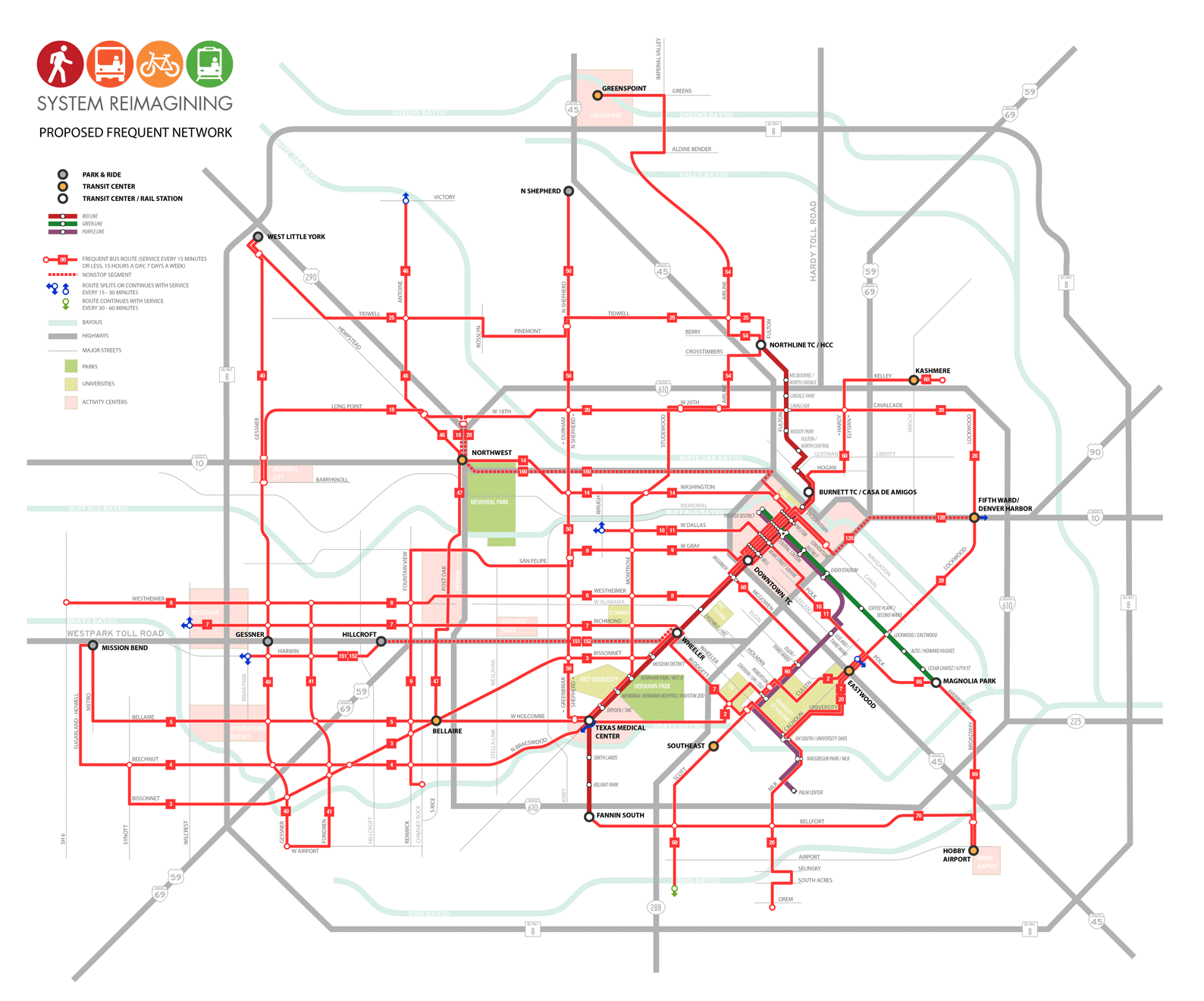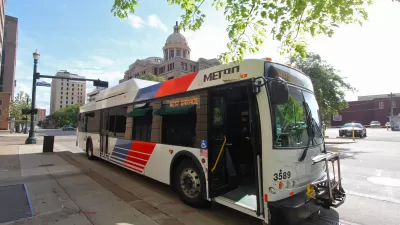Houston has proposed a large-scale overhaul of the Metro bus system. Based primarily on a high-frequency grid, the proposed plan would make sweeping changes to routes, nomenclature, and more. The plan will be a "must watch" for planners.
"Metro on Thursday released a draft of its 'reimagining' plan, intended as a broad upgrade to the region's bus system," reports Dug Begley. "Some officials said the plan could help increase ridership by 20 percent or more after two years."
"Metro buses, operating on a system largely developed in the 1980s, are essentially delivering the best service for the Houston of 1990," writes Begley in presenting the case for the upgrade. Specifically, "[the] system is based largely on an assumption that most people are trying to get downtown, although major employment centers have emerged elsewhere."
Begley's article quotes Jarrett Walker, who guided the redesign, in describing the obsolescence of the system: "Frankly, Houston is unique for how obsolete the system has gotten," says Walker.
Walker provides his own coverage of the proposal at his Human Transit blog, where he focuses especially on how much frequent network service will be gained by the overhaul—all without increasing operating costs. "The core idea of the new network is the high-frequency grid, designed to enable anywhere to anywhere travel with a single fast connection. Everywhere on the proposed network of red lines, that kind of easy access will be possible," explains Walker.
Eric Jaffe also examines the proposal, focusing on the frequent network but also some of the other improvements proposed by the plan: "The proposed system uses straighter routes and ties names to streets, which makes it more intuitive to navigate. It's an all-day system, which means riders get the same type of service on nights and weekends that they get during rush hours. Most importantly, the system connects to job centers all around the city instead of primarily the the downtown core, which creates better access between home and work."
A vote is likely in August or September. As Begley mentions in his coverage of the proposal, Metro officials are anticipating opposition, given the sweeping nature of the proposed changes.

FULL STORY: Metro unveils major change to bus service, awaits public outcry

Maui's Vacation Rental Debate Turns Ugly
Verbal attacks, misinformation campaigns and fistfights plague a high-stakes debate to convert thousands of vacation rentals into long-term housing.

Planetizen Federal Action Tracker
A weekly monitor of how Trump’s orders and actions are impacting planners and planning in America.

In Urban Planning, AI Prompting Could be the New Design Thinking
Creativity has long been key to great urban design. What if we see AI as our new creative partner?

King County Supportive Housing Program Offers Hope for Unhoused Residents
The county is taking a ‘Housing First’ approach that prioritizes getting people into housing, then offering wraparound supportive services.

Researchers Use AI to Get Clearer Picture of US Housing
Analysts are using artificial intelligence to supercharge their research by allowing them to comb through data faster. Though these AI tools can be error prone, they save time and housing researchers are optimistic about the future.

Making Shared Micromobility More Inclusive
Cities and shared mobility system operators can do more to include people with disabilities in planning and operations, per a new report.
Urban Design for Planners 1: Software Tools
This six-course series explores essential urban design concepts using open source software and equips planners with the tools they need to participate fully in the urban design process.
Planning for Universal Design
Learn the tools for implementing Universal Design in planning regulations.
planning NEXT
Appalachian Highlands Housing Partners
Mpact (founded as Rail~Volution)
City of Camden Redevelopment Agency
City of Astoria
City of Portland
City of Laramie



























